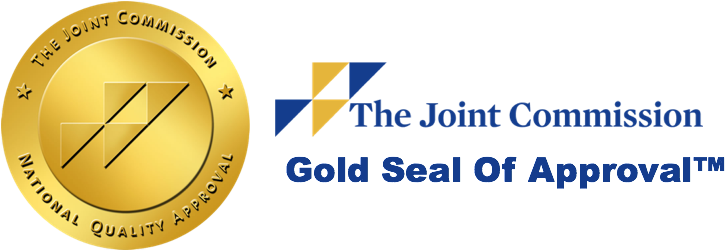Anxiety is a mental state of uneasiness, fear, or dread. Having anxiety is a mental health condition that can affect your ability to function throughout your day. It is your body’s response to stress and worry, and can have physical manifestations such as an increased heart rate, sweating, and muscle tension.
Having anxiety is normal and common, especially when you have something important or decisive coming up, like an interview or a performance. However, if these feelings are more extreme and last for longer periods of time, interfering with your daily routine, you may have an anxiety disorder. Seeking treatment for an anxiety disorder is the best thing to do for the well-being of your mental health. In this article we’ll dive deeper into the different types of treatments available for an anxiety disorder, symptoms of anxiety disorders, and treatment available for anxiety disorders.
What are common types of anxiety disorders?
General Anxiety Disorder (GAD) – GAD is excessive and uncontrollable anxiety about different areas of life for no apparent reason, even without identifiable triggers. Someone with GAD may worry excessively about something even when there isn’t a reason to, and even when they recognize there isn’t anything to work about.
Obsessive-compulsive disorder (OCD) – OCD is a pattern of unwanted, recurring and repetitive thoughts and obsessions that cause intense stress and anxiety (obsession). This causes repetitive behaviors and rituals (compulsion) in order to decrease anxiety and stress levels. These compulsions might help with anxiety temporarily, since the obsessions soon come back and cause stress once again, and it becomes a constant cycle of mental instability.
Phobia – A phobia is having excessive fear of an object, place, activity, or situation. This fear can be of something that poses little to no actual danger or threat and is debilitating and overwhelming. People who have a phobia will go to great lengths to avoid the thing they fear.
Panic Disorder – Panic disorder is a recurring, unwanted, and unprovoked panic attacks, or experiencing a sensation of terror when there is no real danger. Panic is the most extreme form of anxiety.
Diagnosis: What are the common symptoms of an anxiety disorder?
An official diagnosis for an anxiety disorder would require a number of assessments and examinations administered by a doctor or mental health professional. These assessments may involve a physical exam, psychological questionnaires, and analyzing your medical history. There are no lab tests or scans to diagnose an anxiety disorder, but may be done to rule out any underlying medical conditions.
Symptoms
Even without an official diagnosis, symptoms of anxiety disorders may indicate the presence of one. People experience anxiety in many different ways, but one similarity lies in the inability to feel control when a person is experiencing it. Some physical symptoms include:
- Shortness of breath
- Excessive sweating
- Increased heart rate
- Nausea
- Restlessness
- The inability to sleep or insomnia
- Having trouble concentrating or focusing
One may also experience mental symptoms with anxiety, which includes:
- Uncontrollable and obsessive thoughts
- Feeling intense dread or fear associated with random events or activities
- Feeling unprovoked panic, uneasiness, and apprehension
- Experiencing nightmares or repeated flashbacks of traumatic events
Getting Treatment and Care for Anxiety
The single most important component of anxiety treatment is consulting with a doctor or mental health professional. This will help you receive the best possible treatment for your condition and your specific needs. Feeling anxiety is completely normal, and is even sometimes good to have. Anxiety keeps us alert to danger or threats in our proximity. However, anxiety may also have a debilitating effect on people who experience it. You can’t cure anxiety all by yourself, but you can find the best ways to get treatment for it. Anxiety treatment falls primarily under two categories: psychotherapy and medication.
Psychotherapy
Psychotherapy, or meeting with a therapist or counselor, is an effective form of treatment for anxiety. Since the root of anxiety stems from the mind, talking to a mental health professional will help you understand why your mind might process certain things a certain way and why you might be experiencing anxiety the way that you are. By meeting with a psychologist or counselor, you can learn specific skills and coping strategies that help you manage your anxiety. Since anxiety is closely related to other mental disorders like depression and posttraumatic stress disorder (PTSD), receiving counseling will help you understand the different ways anxiety contributes to these conditions.
One form of psychotherapy is called cognitive-behavioral therapy (CBT). This type of talk therapy teaches you how your thoughts affect your emotions and behaviors. Through CBT, you’ll unlearn negative thought patterns and train your brain to adopt healthier thinking habits. This process takes place over a series of sessions with a therapist who will ask you questions that will help you learn a new perspective on your issues and develop coping skills to combat negative thoughts and behaviors.
Medication
A doctor might prescribe a form of medication to treat your anxiety, but not for the purpose of curing or healing you. Anxiety medications are prescribed to decrease the negative effect of symptoms and make them more manageable so that your life doesn’t experience the emotional or mental interference it normally does. Note that each medication may also have negative side effects.
Antidepressants – Anxiety and depression are closely connected, and antidepressants have been shown to help in treating anxiety. These might be prescribed to balance brain chemistry by affecting neurotransmitters. Selective serotonin reuptake inhibitors (SSRIs) increase levels of serotonin, a natural mood stabilizer. Antidepressants can help regulate your anxiety.
Beta-blockers – This is a medication that reduces blood pressure by blocking the hormone epinephrine or adrenaline. Beta-blockers make the heartbeat slowly with less force, and the arteries and veins are widened to stabilize and improve blood flow. These are mostly used to decrease blood pressure so that your heart doesn’t have to work so hard when you are experiencing stress or anxiety.
Benzodiazepines – These are a type of sedative medication, and are the most widely prescribed for anxiety. They go into the central nervous system to make the brain less sensitive to stimulation, causing a calming effect. Benzodiazepines are normally not recommended for long-term treatment, as they can be habit-forming and be abused.
At-Home Remedies
When a doctor or professional isn’t nearby to provide immediate help, there are self-help methods you can use to manage your anxiety and stress. Lifestyle changes can make all the difference in taking the right steps to treat anxiety.
Getting proper sleep – Make sleep a priority, and make sure you get sleep at night – naps aren’t a proper replacement for getting adequate rest.
Staying physically active – Along with keeping your body healthy and strong, regular physical activity can reduce stress and improve your mood.
Healthy diet – Eat healthy foods and avoid caffeine, alcohol, and recreational drugs to maintain a good diet.
Relaxation techniques & meditation – Deep breathing exercises and meditation can act as an antidepressant and relax the body, easing anxiety and stress. The 3-3-3 rule can help center your mind: first, you name three things you see, then you name 3 things you hear, and finally, you move 3 parts of your body. This rule keeps you grounded and shifts your awareness to the present moment.
Get Treatment At The Phoenix Today
Anxiety can’t simply be cured, but it can be managed and the symptoms can be reduced. Anxiety disorders are best treated through psychotherapy and prescribed medication. Make an appointment with your doctor or mental health professional to start your treatment for anxiety, and be prepared to answer questions about your current mental state and medical history. This way, you may be able to find the best care possible whether it is through psychotherapy or medication.
Residential treatment centers, like The Phoenix RC provide a viable opportunity to receive both of these treatments. A huge benefit of The Phoenix is direct access to professional psychologists, and mental health professionals for an extended time without waiting months to get your first appointment, and months longer to get your second appointment.







